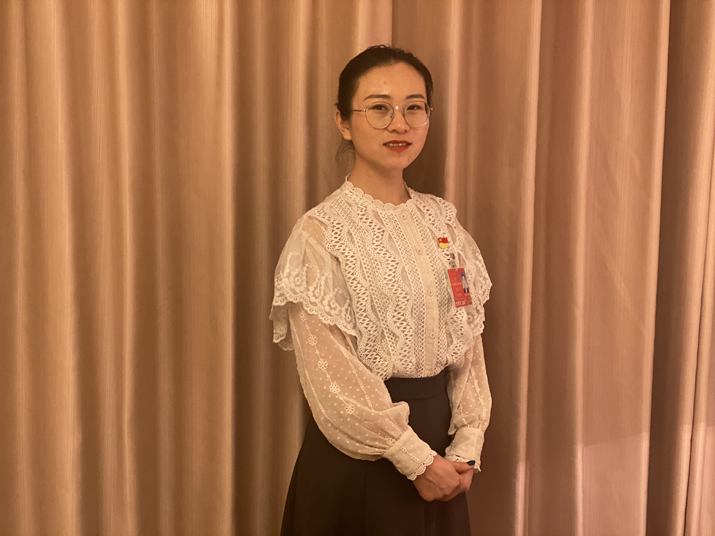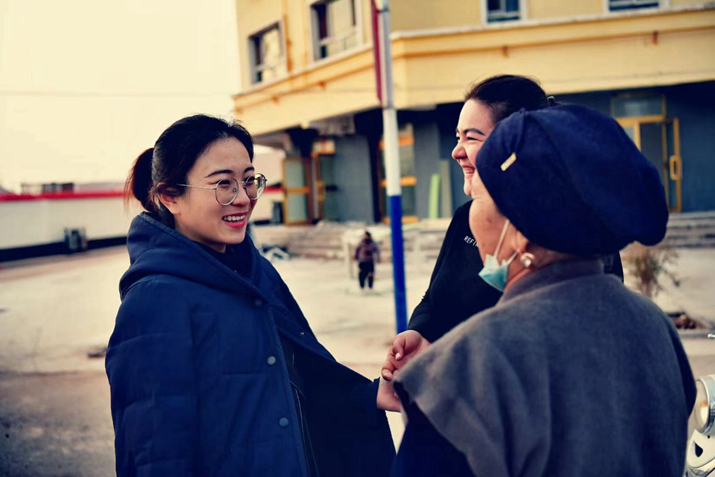
Cui Jiuxiu, a deputy to the 13th NPC from Xinjiang Uygur Autonomous Region (COURTESY PHOTO)
Deputies to the National People's Congress (NPC), China's national legislature, collect and distill the voices of the people, and bring them to the authorities for consideration at the annual session of the NPC. This creates a smooth channel for addressing the needs of the people, Cui Jiuxiu, a deputy to the 13th NPC from Xinjiang Uygur Autonomous Region, told Beijing Review.
"Many people may not know what the NPC deputies do. People can talk to us about any concerns or opinions they have. As long as they are reasonable and legal, we will write them down, and submit them to the NPC, which will take the issues to relevant government departments," Cui said.
Cui is the deputy Party chief of Opal Township in Kashgar, Xinjiang. At the foot of the Pamir Plateau, Opal is home to fruit cultivation, forestry and farming. Limited arable land and the dry climate meant villagers' farming efforts previously resulted in little profit. However, the national anti-poverty campaign has brought more farming technologies and rural tourism to the area, increasing residents' standard of living.
Cui is one of the pioneers who educates farmers about new ways to increase yield and grow new channels for employment. Working in Xinjiang's rural areas for about eight years since graduating from college, she pays great attention to the topic of rural revitalization and focuses on rural tourism to create income for more locals.

Cui Jiuxiu talks to villagers at Opal Township in Kashgar, Xinjiang (COURTESY PHOTO)
With the Fifth Session of the 13th NPC scheduled to conclude on March 11, Cui will return to her work, performing her duties as an official in the town, and also continuing her work as a deputy.
Stations and offices are established where NPC deputies regularly work and wait for the people to communicate with them. After problems are collected, deputies will begin investigating through research, field visits and further talks with the community, and then produce a formal document with issues and suggestions for submission to the NPC.
After the NPC receives the documents, it will give each issue to the relevant government body, which will provide feedback to the deputy who proposed it. "How long government organizations take to provide a reply varies, but all suggestions will definitely receive a response," Cui said.
Cui is also making innovations in terms of collecting public opinion, such as posting vlogs on social media so that more people will know that NPC deputies are ready to hear from them.
One of the suggestions she made this year comes from her WeChat account. An acquaintance learned from her post on the social platform that she was leaving for Beijing to attend the NPC session and he chatted with her about his confusion about the ticket price for children's air travel.
According to the current regulations, plane tickets for children are charged at 50 percent of the normal adult fare, but many adult fares, after discounts, are much lower than half-price. "So in reality, people might pay more for children than for adults, and that shouldn't be the original intention," Cui said. She will be waiting for the civil aviation administration to reply.
"Now, we have nearly 3,000 deputies in the country. Each representative has connections to a number of households. In such a fashion, all households can be covered, and they always have a deputy to reach out to. This is what the whole-process people's democracy really means," Cui said.
"No matter what they think in Western countries, as long as we implement this system properly, we are ensuring that the people are the masters of the country. That's what we're doing right now," Cui added.
Copyedited by G.P. Wilson
Comments to luyan@cicgamericas.com